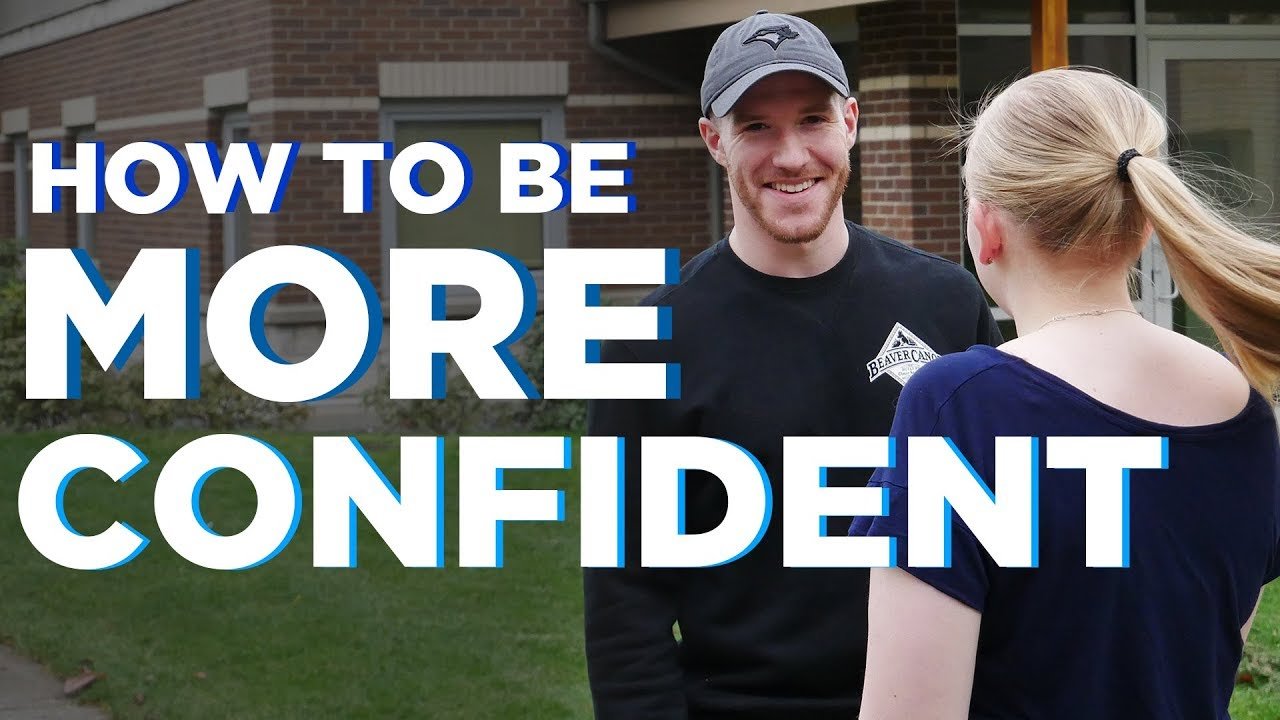
14.1 Introduction
Each one of us experiences different levels of confidence that are influenced by many factors - peers, society, parents and childhood experiences to name a few. For those who were fortunate, positive childhood influences and experiences play a critical part in building self-confidence. Negative experiences, on the other hand, can diminish our confidence levels.
Lack of self-confidence can make its presence felt in the form of shyness, lack of assertiveness and inability to communicate clearly. All these debilitating effects can come in the way of success at the workplace. Lack of confidence may prevent you from communicating effectively with both customers and colleagues. Your innate talents may remain unnoticed because you are probably too shy.
Self-confidence is an empowering tool that can help you make the most of your abilities, your experiences and your life. You experience freedom from self-doubt and improve chances of success at every level of your career. Confidence at the workplace can be defined as awareness of the value that you bring to the workplace and being able to convey this to others in the organisation. It is worthwhile noting that confidence is not to be confused with overconfidence and arrogance.
14.2 The Importance of Self-confidence at the Workplace

Confidence at the workplace helps you work according to your set of values and helps you practice your work ethics without attendant feelings of guilt.
Improved self-confidence helps you perform in situations that are out of your comfort zone. You will find yourself facing complex and stressful situations with poise and grace. Lack of self-confidence may leave us feeling nervous and apprehensive of new challenges.Confidence gives you the impetus to push your limits and learn new skills. As you become aware of your abilities to perform and learn, you are able to expand your repertoire of skills.
Leadership almost always flows to the person who is confident and is able to communicate assertively. Self-confidence is likely to help you attain positions of responsibility and achieve career advancement.
FACT
According to a study in the United States those who have self-confidence earn up to $28,000 more than those who don't
Source: Carereform.com
14.3 Powerful Ways to Build your Self-Confidence

We all have self-confidence issues; some of us may lose confidence as we get older, but some of us become more confident individuals.
You can do a lot by evaluating your inner circle. It may sound harsh, but do you really need negative people in your life? Anybody who puts you down or destroys your confidence is not a good friend/colleague or worth investing your trust in.
Dealing with negativity in the workplace is intrinsically related to developing your own selfconfidence. Avoid the company of co-workers who take pleasure in doubting your abilities or putting you down. Do not confuse them with someone who is trying to help you out genuinely. Just smile and remain detached from their opinion about you. Continue on with your work and avoid being in their company; opt to be around positive, empowering and helpful people instead.
This does not apply only to colleagues; you can also experience nasty superiors whose harsh behaviour may erode your own confidence in the workplace. The colleague or boss (or you for that matter) may quit the job, but the damage will linger on in our psyche. The trick is to keep your inner self, your inner feelings protected and immune to external negativity. Improving self-confidence involves two major phases: Purging yourself out of uncertainty and selfdoubt and building self-confidence.
As simple as it sounds, look good and feel great!
The way you carry yourself is often indicative of self-confidence levels. Focus on your posture and you will notice that the confident people hold themselves up, smile, make eye contact and speak slowly and clearly. Being around confident people will help you gain confidence too!
Whenever you speak to people, make eye contact. Follow this simple but effective tip for communications both within and outside the workplace.
Here are some tips to maintain eye contact with your listeners:
1. If you are talking to a group, make eye contact with every person in the group. If you maintain eye contact with only one person, the others will stop listening.
2. Maintain eye contact for about five seconds and then look away (and not down). Excessive eye contact may come across as intimidating.
3. If you face a situation whereby you may need to challenge the opinions of others (or if the tone of the meeting is confrontational), maintaining eye contact indicates confidence.
Confident communication is very important at work, during meetings as well as during interviews.
Activity 1 - Self-Confidence Boosting Exercises
Estimated time: 10-15 minutes
This module discusses the vital importance of self-confidence and the many different influencing factors that can determine how we perceive ourselves.
To ensure that you are keeping your confidence up and are ready for a career as a personal assistant, take some time to practise a few confidence boosting exercises. What are some ways that you can boost your own self-confidence? Choose a couple to try and record your results.
14.4 Understand the Origin
Self-doubt usually begins as a baby, when we grow up we look at adults and think we have to be like them.
This focus is not a problem, placing role models in high regard is complex but not a negative. When Self-doubt usually begins as a baby, when we grow up we look at adults and think we have to be like them. This focus is not a problem, placing role models in high regard is complex but not a negative. When we begin to compare ourselves to people in a position of power, we imagine a comparative sense of self with our ego ideal. This constant comparison can lead to distorted self-perception of our abilities and self-worth. Nobody can live up to unrealistic expectations, so many of us are plagued with doubts. Developing self-confidence revolves around changing your perception of yourself. You gradually begin to stop basing your opinion of yourself based on other people's opinions.
14.5 Acceptance

Acceptance therapy is another method that can be used from an early age.
As an adult, you can use it by admitting to yourself that there may be a problem with your confidence. This frank acceptance can help reduce the stress levels. Most of us may not readily admit that we need help with improving our self-confidence.
Remind yourself of why you are in your position, the hard work and obstacles you have overcome to get here and that you have the requisite ability to do your job well. You would not have been chosen for the role if you were not skilled enough to perform it. List all of your valuable skills, but do not give yourself false self-praise. Take on challenges that will suit your skill set of personal qualities. You should learn but we also encourage you to capitalise on your natural talents.
Adopt behaviour and emotions that reflect who you really are. This will boost your self-confidence at work. Try and work with people who share your aims and beliefs and your confidence will grow together, as will your trust in each other.
14.6 Don't be Intimidated by Challenge
If you get too used to doing the same thing over and over, new ground can become intimidating.
Especially as you get older!
Age should never set you back from trying new things at work and do not get caught up in 'traditions'.
Spread your wings of confidence and opt to go for new training programmes that help reinforce your skills, whenever they become available.
Fishing for compliments is seen as insecure and needy behaviour - which will only make your confidence issues worse. Accept compliments when they are given just as you should with constructive criticism. By all means ask for opinions, but avoid being overly obsessed with compliments. People who are always seeking the approval of others are perceived as lacking in selfconfidence. Confidence is a great tool but arrogance is not.
An arrogant person disregards the feelings of others while a confident person allows people to express themselves. A truly confident person will let their actions do the talking, so tread carefully and be careful not to tread the fine line between self-confidence and arrogance as you ascend the career ladder.
Confidence is a way of life. We will all have times of doubt when we are least expecting it. But we can learn how to make these moments less frequent and keep us from feeling down. Be aware that you have helped your boss in many ways. Self appreciation is a good thing and give yourself due credit. Give yourself a well-deserved pat on the back when you do a good job.
Avoid bragging at work, but make sure you receive credible mentions at meetings or conventions for your ideas. Avoid allowing third parties to take away credit for your hard work, but understand the rules of team work. This will help you develop self-confidence while learning to work with people.
14.7 Benefits of Team Building Exercises

We always stress how important communication is at work and team building exercises can help break down barriers.
Some people may not like working as a team or trust others, but by working together to solve tasks you can bond with each other at the same time. This will help set up a new dynamic and expose any weaknesses that need to be improved within the group.
Team building can help build friendships with colleagues with whom you may not always see eye to eye. Having a chance to bond away from work can help you both achieve a level of mutual respect instead of resentment. A team needs to be able to respond collectively to rapid changes in the work place.
14.8 Self-confidence In and Outside of Work
A confident mind means less stress.
Less stress means a healthier you and a more able body and mind. Stress leads to murky thinking and could force you to quit your job or make irrational decisions. Improving your confidence will help you lead a life of fulfilment.
Positive contributions generate return. When you prove that you are happy to go the extra mile, your boss will be happy to trust you with added responsibilities. You will thus enjoy improved prospects of being considered for positions of leadership and importance.
Activity 2 - Working on Acceptance Therapy
Estimated time: 10-15 minutes
If you practised some of the confidence boosting exercises that the module suggested, then you should be well on your way to feeling more confident and secure in your professional abilities.
You may realise that there are some areas in your life where you lack confidence, even if you are very secure in others. In this activity, you should identify the areas in your life that you lack confidence. Once you do, work on the acceptance therapy methods you learned in the module. Make a note of your experiences.
14.9 Tips to Improve Confidence at Work

Our confidence levels wax and wane depending on the way we react to criticism and the manner in which we choose to navigate the learning curve.
Here are some useful tips to direct your thoughts in the right direction.
1. Change your viewpoint and stop obsessing about the impact that co-workers and bosses have on you. You have to realise the fact that it's only your thoughts and actions that matter. Once you appreciate the empowering effect that you can have on others, you will gain confidence.
2. Voice out your intentions aloud. Telling people about the tasks that you intend to complete will help you gain confidence because you are holding yourself accountable.
3. Avoid thinking and speaking negatively about your workplace. Thinking of yourself as 'exploited' will act as a mental brake to progress and success. Negative thinking is a drain on mental energy and saps motivation to do better. Change your perception and view your job as a stepping stone to career progression. Think well of your workplace and the job that you do.
4. When you face criticism, dismiss the anger, resentment and irritation and focus on the growing experience instead. Instead of internalising the negative opinions, examine the situation and see where you can improve in an impersonal manner.
5. Take pride in your new personality. Stop looking for excuses and stop erecting communication barriers. When our confidence levels are low, we tend to subconsciously put up fences with others thus triggering a self-perpetuating cycle. Ensure that your colleagues (as well as bosses) notice the new you.
6. Avoid negative self-talk. Individuals who suffer from low self-confidence tend to indulge in negative self-chatter which has an extremely undermining effect on confidence. Talk to yourself in a positive way. When you talk to others, there is no need to talk yourself down in a deprecating manner. Conversely, there is no need to talk yourself up either. Selfaggrandisement is also a sign of mental insecurity. Confident people make out a plan and stick to it diligently and silently.
7. Spend time learning and practising more of your knowledge. Acting on what you know helps boost confidence levels. Watch seminars and listen to company talks and learn about the products and services.
8. Ignore personal attacks and unwarranted criticism by replacing it with something positive about yourself. When we face personal attacks, it tends to bring us down and leads to a waste of mental energy. Bounce the criticism by thinking of something good about yourself.
9. Smile and walk with your head held high. Shuffling along with your head bent and muttering greetings indicates low confidence levels. Make eye contact with your co-workers, give a smile and a friendly greeting. This friendly and communicative attitude will help increase your own energy levels. There is also a second benefit: You will gradually become known to people and get to know people yourself. Nameless departments transform into real people and names will turn into friendly faces.
10. Avoid the company of negative, pessimistic and reserved people. Such personalities often nurse deep insecurities and grudges. Opt to stay around positive, proactive, cheerful and helpful people. This will help you gain confidence and you will begin to enjoy your job better.